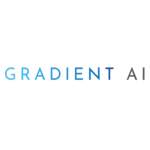Gradient AI Study: AI Reduces Legal Involvement in Workers’ Compensation Lost-Time Claims by 15%, Saving Insurers Millions
New Research of More than 200,000 Claims from 60 Insurers Highlights AI’s Role in Significantly Reducing Attorney Involvement
LAS VEGAS–(BUSINESS WIRE)–#AIinInsurance—National Workers’ Compensation and Disability Conference September 20, 2023 — Gradient AI, a leading enterprise software provider of artificial intelligence (AI) solutions in the insurance industry, today announced the results of a comprehensive research study showing that AI-enabled workers’ compensation claims management reduced legal involvement for lost-time claims by 15%. This reduction translates into a 5% savings in lost-time claim costs, equating to an estimated annual savings of $3.5 million based on the study’s insurers managing an average of $70 million in lost-time claims.
“Our goal was to better understand AI’s potential to deliver value and shape critical decisions around workers’ compensation claims,” said Stan Smith, CEO and founder of Gradient AI. “This study reaffirms that AI is a valuable tool in managing these claims, especially in avoiding costly legal fees and time-consuming litigation. The results not only show substantial cost reductions but also highlight AI’s potential to streamline the claims process, benefiting injured workers, employers, and insurers. It’s a win-win-win, making the results of the study particularly gratifying.”
Legal involvement is a major cost driver in casualty claims, particularly in the context of lost time claims. These are cases where an injury is severe enough to require the injured employee to remain out of work for an extended period of time.
To better understand the efficacy of AI models trained on industry data lakes, Gradient AI conducted a comprehensive study on workers’ compensation claims. This research encompassed an analysis of over 200,000 lost-time workers’ compensation claims, collected from a diverse pool of more than 60 insurance carriers over a 10-year period. Within this dataset, half of the 200,000 claims underwent assessment prior to the integration of AI, while the remaining half were evaluated after AI implementation.
Key Findings
15% Reduction in Legal Involvement: Gradient AI’s researchers found that lost-time workers’ comp claims involving lawyers cost 3x more than claims without legal involvement and lasted nearly 2x as long. The study revealed that insurers leveraging AI effectively reduced legal involvement by 15% because AI models were able to assess claim complexities, predict the likelihood of legal involvement, and provide early warnings to claims adjusters.
5% Reduction in Lost-Time Claims Costs: AI’s proactive identification of potential legal engagements resulted in a notable 5% reduction in lost-time claims costs, equivalent to an annual $3.5 million based on the study’s insurers averaging $70 million in lost-time claims. This savings was achieved by providing adjusters with early alerts regarding injury severity and changes in claims status. Early alerts enabled timely actions such as additional attention and outreach by the claims manager and proactive steps to arrange for additional medical treatment.
Mitigated the Three Primary Reasons for Legal Representation: Three key factors drive claimants to seek legal representation:
- Erosion of Trust: Prolonged open claims can erode trust between claimants and insurance adjusters over time. AI mitigated this by expediting the process, reducing the need for claimants to seek legal assistance.
- Fear of the Unknown: Claimants often seek legal counsel as a safety net when facing severe injuries or doubts about recovery. AI provided insurers with the ability to proactively address these concerns, thus avoiding legal escalation.
- Intent to Litigate: Some claimants are determined to pursue legal action. AI empowered insurers to intervene early, potentially averting costly legal engagement.
Gradient AI’s study demonstrated that early warnings, based on AI models trained on an extensive industry data lake of workers’ compensation policies and claims, enable insurers to proactively manage claims much more efficiently and effectively. This approach results in faster resolution, reduced legal involvement, and substantial cost savings.
“This research unveils how AI insights empower insurers to take proactive measures,” said Jeff Snider, GM of Property & Casualty, Gradient AI. “As an attorney, I recognize the importance of minimizing the cost of legal involvement. This study demonstrates how AI’s predictions provide adjusters with an early warning, enabling them to significantly mitigate legal involvement.”
Full details of the study are available on Gradient AI’s website.
Gradient AI is a leading provider of proven artificial intelligence (AI) solutions for the insurance industry. Its solutions improve loss ratios and profitability by predicting underwriting and claim risks with greater accuracy, as well as reducing quote turnaround times and claim expenses through intelligent automation. Unlike other solutions that use a limited claims and underwriting dataset, Gradient’s software-as-a-service (SaaS) platform leverages a vast industry data lake comprising tens of millions of policies and claims. It also incorporates numerous other features including economic, health, geographic, and demographic information. Customers include some of the most recognized insurance carriers, MGAs, MGUs, TPAs, risk pools, PEOs, and large self-insured employers across all major lines of insurance. By using Gradient AI’s solutions, insurers of all types achieve a better return on risk. To learn more about Gradient AI, please visit: https://www.gradientai.com.
Contacts
Media
Elyse Familant
Results PR
[email protected]






































